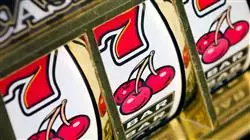University certificate
The world's largest faculty of medicine”
Introduction to the Program
With this Postgraduate diploma you will be able to understand how the drug market has developed and its impact on the world population”

This Postgraduate diploma is unique for the multitude of techniques and tools given to the physician so that they can specialize in addiction intervention. Aimed at professionals who wish to specialize in the field of addictions, or who want to update their knowledge in this regard, it offers the latest advances in the field of medical treatment of addictions and prevention, so that they can intervene competently in this type of problem.
The program covers most of the addictions that a physician will encounter in their daily practice and will help them to position and orient themselves in the intervention in a realistic and committed way, to know the role they should play in the intervention together with other professionals and to know how to apply the most appropriate techniques for each moment of the intervention process.
The teaching team of this program has made a careful selection of each of the topics of this specialization in order to offer the student a study opportunity as complete as possible and always related to current events.
In addition, the professional will have access to an exclusive set of unique and complementary Masterclasses, taught by an internationally renowned professor. His broad experience and deep mastery of the field of Behavioral Neuroscience will guide graduates, providing them with the fundamental skills to keep up to date with the latest scientific innovations in Psychological Intervention in Non-Substance Addictions.
As it is an online program, the student is not conditioned by fixed schedules or the need to move to another physical location, but can access the contents at any time of the day, balancing their professional or personal life with their academic life.
You will be immersed in Psychological Intervention in Non-Substance Addictions through exclusive Masterclasses, designed by a prestigious international expert in Behavioral Neuroscience"
This Postgraduate diploma in Psychological Intervention in Non-Substance Addictions contains the most complete and up-to-date scientific program on the market. The most important features include:
- The development of practical cases presented by experts in non-substance addictions
- The graphic, schematic, and practical contents with which they are created, provide scientific and practical information on the disciplines that are essential for professional practice
- Practical exercises where the self-assessment process can be carried out to improve learning
- Its special emphasis on innovative methodologies
- Theoretical lessons, questions to the expert, debate forums on controversial topics, and individual reflection assignments
- Content that is accessible from any fixed or portable device with an Internet connection
Make this program the best investment of time to know how to identify erratic behaviors in patients with gambling addiction"
The program’s teaching staff includes professionals from the sector who contribute their work experience to this educational program, as well as renowned specialists from leading societies and prestigious universities.
The multimedia content, developed with the latest educational technology, will provide the professional with situated and contextual learning, i.e., a simulated environment that will provide immersive education programmed to prepare for real situations.
This program is designed around Problem-Based Learning, whereby the professional must try to solve the different professional practice situations that arise during the course. For this purpose, the students will be assisted by an innovative interactive video system created by renowned and experienced experts.
Increase your decision-making confidence by updating your knowledge with this Postgraduate diploma"

Don't miss the opportunity to update your knowledge in Psychological Intervention in Non-Substance Addictions in order to improve your patient care"
Why study at TECH?
TECH is the world’s largest online university. With an impressive catalog of more than 14,000 university programs available in 11 languages, it is positioned as a leader in employability, with a 99% job placement rate. In addition, it relies on an enormous faculty of more than 6,000 professors of the highest international renown.

Study at the world's largest online university and guarantee your professional success. The future starts at TECH”
The world’s best online university according to FORBES
The prestigious Forbes magazine, specialized in business and finance, has highlighted TECH as “the world's best online university” This is what they have recently stated in an article in their digital edition in which they echo the success story of this institution, “thanks to the academic offer it provides, the selection of its teaching staff, and an innovative learning method aimed at educating the professionals of the future”
A revolutionary study method, a cutting-edge faculty and a practical focus: the key to TECH's success.
The most complete study plans on the university scene
TECH offers the most complete study plans on the university scene, with syllabuses that cover fundamental concepts and, at the same time, the main scientific advances in their specific scientific areas. In addition, these programs are continuously being updated to guarantee students the academic vanguard and the most in-demand professional skills. In this way, the university's qualifications provide its graduates with a significant advantage to propel their careers to success.
TECH offers the most comprehensive and intensive study plans on the current university scene.
A world-class teaching staff
TECH's teaching staff is made up of more than 6,000 professors with the highest international recognition. Professors, researchers and top executives of multinational companies, including Isaiah Covington, performance coach of the Boston Celtics; Magda Romanska, principal investigator at Harvard MetaLAB; Ignacio Wistumba, chairman of the department of translational molecular pathology at MD Anderson Cancer Center; and D.W. Pine, creative director of TIME magazine, among others.
Internationally renowned experts, specialized in different branches of Health, Technology, Communication and Business, form part of the TECH faculty.
A unique learning method
TECH is the first university to use Relearning in all its programs. It is the best online learning methodology, accredited with international teaching quality certifications, provided by prestigious educational agencies. In addition, this disruptive educational model is complemented with the “Case Method”, thereby setting up a unique online teaching strategy. Innovative teaching resources are also implemented, including detailed videos, infographics and interactive summaries.
TECH combines Relearning and the Case Method in all its university programs to guarantee excellent theoretical and practical learning, studying whenever and wherever you want.
The world's largest online university
TECH is the world’s largest online university. We are the largest educational institution, with the best and widest online educational catalog, one hundred percent online and covering the vast majority of areas of knowledge. We offer a large selection of our own degrees and accredited online undergraduate and postgraduate degrees. In total, more than 14,000 university degrees, in eleven different languages, make us the largest educational largest in the world.
TECH has the world's most extensive catalog of academic and official programs, available in more than 11 languages.
Google Premier Partner
The American technology giant has awarded TECH the Google Google Premier Partner badge. This award, which is only available to 3% of the world's companies, highlights the efficient, flexible and tailored experience that this university provides to students. The recognition as a Google Premier Partner not only accredits the maximum rigor, performance and investment in TECH's digital infrastructures, but also places this university as one of the world's leading technology companies.
Google has positioned TECH in the top 3% of the world's most important technology companies by awarding it its Google Premier Partner badge.
The official online university of the NBA
TECH is the official online university of the NBA. Thanks to our agreement with the biggest league in basketball, we offer our students exclusive university programs, as well as a wide variety of educational resources focused on the business of the league and other areas of the sports industry. Each program is made up of a uniquely designed syllabus and features exceptional guest hosts: professionals with a distinguished sports background who will offer their expertise on the most relevant topics.
TECH has been selected by the NBA, the world's top basketball league, as its official online university.
The top-rated university by its students
Students have positioned TECH as the world's top-rated university on the main review websites, with a highest rating of 4.9 out of 5, obtained from more than 1,000 reviews. These results consolidate TECH as the benchmark university institution at an international level, reflecting the excellence and positive impact of its educational model.” reflecting the excellence and positive impact of its educational model.”
TECH is the world’s top-rated university by its students.
Leaders in employability
TECH has managed to become the leading university in employability. 99% of its students obtain jobs in the academic field they have studied, within one year of completing any of the university's programs. A similar number achieve immediate career enhancement. All this thanks to a study methodology that bases its effectiveness on the acquisition of practical skills, which are absolutely necessary for professional development.
99% of TECH graduates find a job within a year of completing their studies.
Postgraduate Diploma in Psychological Intervention in Non-Substance Addictions
Are you interested in learning how to address non-substance addictions? If so, the Postgraduate Diploma in Psychological Intervention in Non-Substance Addictions from TECH Global University is for you. This Postgraduate Diploma gives you the opportunity to specialize in an increasingly important and necessary area of psychology. Non-substance addictions, also known as behavioral addictions, are those in which the person develops a dependency to an activity or behavior, such as gambling, compulsive shopping, social networking, pornography, among others. These addictions can seriously affect the quality of life of the person and their loved ones, so professional and specialized intervention is required.
Learn how to deal with behavioral addictions.
This Postgraduate Diploma is designed for mental health professionals, psychologists, psychiatrists and social workers, as well as anyone interested in learning about non-substance addictions. The program has a highly qualified teaching team with extensive experience in the field of clinical psychology and intervention in non-substance addictions. TECH Global University is a leading institution in technological education, which focuses on providing innovative and quality study programs that respond to the needs of the labor market. Don't miss the opportunity to specialize in one of the areas of psychology with the greatest demand and need today. Enroll today in the Postgraduate Diploma in Psychological Intervention in Non-Substance Addictions and take a step forward in your professional career!







